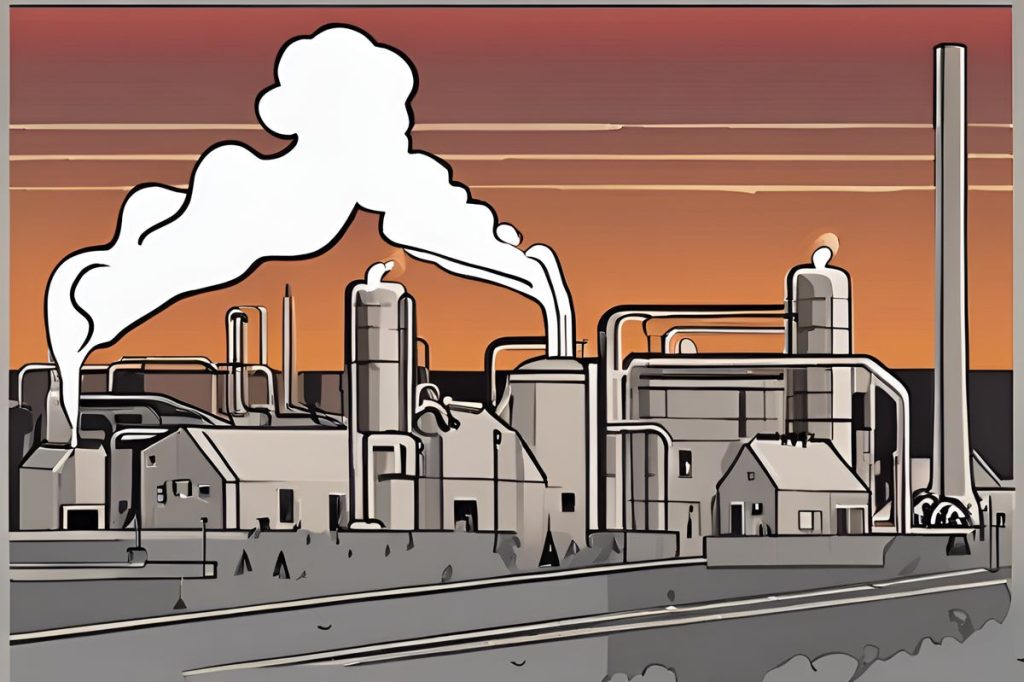The Geri – Dali industrial area faces a critical fire safety risk, with recent incidents prompting demands for enhanced surveillance and strict prevention measures. After a devastating fire at a recycling plant released toxic pollutants and caused power disruptions, the community and President are advocating for stringent regulations and potential relocation of heavy industries to safeguard public safety.
What fire safety concerns have emerged in the Geri – Dali industrial area?
The Geri – Dali industrial area is facing serious fire safety concerns due to the high risk of fire incidents. Authorities are urging for continuous surveillance and strict fire prevention protocols after a recent catastrophic fire at a recycling plant released toxic pollutants and disrupted power. The community and the President demand stringent regulations and potential relocation of heavy industries to ensure public safety.
Elevated Risk of Fire Incidents
The Geri – Dali industrial area has been flagged as a significant fire hazard, raising concerns among local safety authorities and residents. Kyriacos Hadjiyiannis, chairman of the House industry committee, acknowledged the palpable danger during an interview. He highlighted the need for proactive measures, such as the installation of surveillance cameras to oversee the industrial zone continuously.
Further discussions have brought to light the necessity for industrial unit owners to adopt rigorous fire prevention protocols. This proactive stance is pivotal, especially following the distressing events of the previous summer. A recycling plant within the vicinity suffered a devastating blaze, releasing toxic pollutants into the atmosphere and causing widespread power outages, which drew attention to the potential for disaster in the area.
Recent Fire Catastrophe and Its Aftermath
The inferno at the recycling plant was not only an environmental catastrophe but also a public health concern. Toxic smoke forced residents to take precautions, disrupting daily life. Subsequently, there was a strong demand from the community for heavy industries known to cause nuisances to be reined in or relocated.
After the incident, local municipalities and even the President, Nikos Christodoulides, have been vocal in their stance against further development of heavy industries in the region. The President’s commitment to stringent regulatory measures for existing factories, particularly for waste management and hazard containment, echoes the community’s call for a safer living environment.
Regulatory Response and Future Prospects
In response to the escalating risks and the community’s outcry, there has been a concerted effort to ensure the implementation of stricter regulations. Authorities have been tasked with reassessing operational permits, enhancing waste management practices, and minimizing associated risks.
The President’s advocacy for relocating the industrial area indicates a move towards mitigating the risk of future catastrophes. The residents’ safety and health concerns are now a priority, with a clear intention to prevent the recurrence of such harmful incidents. The synergy between the community, industry stakeholders, and the government is crucial for shaping a safer and more sustainable industrial landscape.
Environmental and Health Implications
The repeated incidents in the Geri – Dali industrial area have profound implications for both the environment and public health. The storage of hazardous materials like fuel, bleach, and asphalt near industrial operations has compounded the potential for disaster. The release of harmful toxins due to fires poses long-term risks to residents’ health and the surrounding ecosystem.
The commitment to preventing future fires and relocating heavy industries is a step forward in protecting the environment and ensuring the well-being of local communities. It also serves as a reminder of the importance of enforcing and adhering to safety regulations to avert significant threats to public health and the environment.
What fire safety concerns have emerged in the Geri – Dali industrial area?
The Geri – Dali industrial area is facing serious fire safety concerns due to the high risk of fire incidents. Authorities are urging for continuous surveillance and strict fire prevention protocols after a recent catastrophic fire at a recycling plant released toxic pollutants and disrupted power. The community and the President demand stringent regulations and potential relocation of heavy industries to ensure public safety.
What is the current risk of fire incidents in the Geri – Dali industrial area?
The Geri – Dali industrial area has been identified as a significant fire hazard, prompting local safety authorities and residents to raise concerns. Proactive measures such as installing surveillance cameras for continuous monitoring and enforcing rigorous fire prevention protocols among industrial unit owners are being advocated to mitigate the risk of future fire incidents.
How has the recent fire at the recycling plant impacted the community and environment?
The fire at the recycling plant not only posed environmental challenges but also raised public health concerns. Toxic pollutants released during the blaze led to disruptions in daily life for residents, prompting demands for stricter regulations and potential relocation of heavy industries. The incident highlighted the need for enhanced safety measures to prevent similar catastrophes in the future.
What regulatory and future prospects are being considered to address fire safety in the Geri – Dali industrial area?
In response to the escalating risks and community outcry, authorities are working towards implementing stricter regulations, reassessing operational permits, and improving waste management practices to minimize associated risks. There is also a growing momentum towards potentially relocating heavy industries to mitigate the risk of future disasters and ensure a safer living environment for residents.

